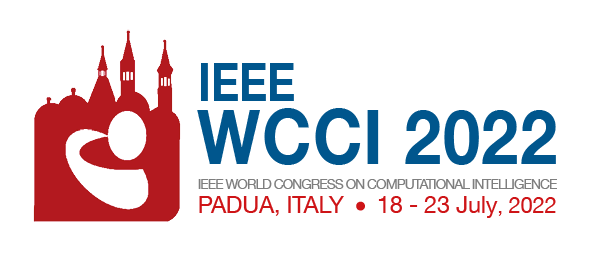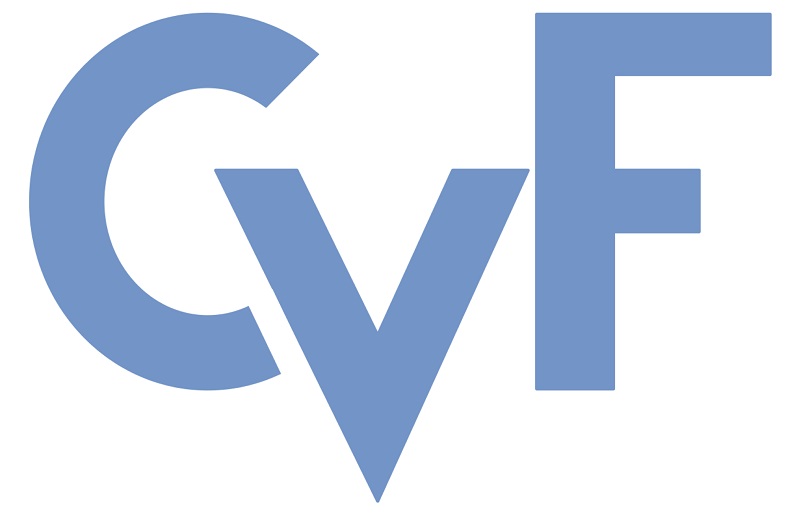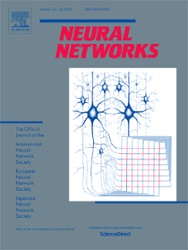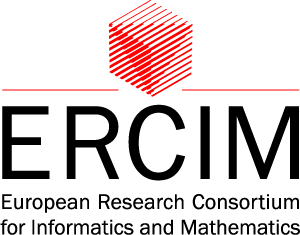Here you can find a consolidated (a.k.a. slowly updated) list of my publications. A frequently updated (and possibly noisy) list of works is available on my Google Scholar profile.
Please find below a short list of highlight publications for my recent activity.
Carta, Antonio; Cossu, Andrea; Lomonaco, Vincenzo; Bacciu, Davide; Weijer, Joost Projected Latent Distillation for Data-Agnostic Consolidation in distributed continual learning Journal Article In: Neurocomputing, vol. 598, pp. 127935, 2024, ISSN: 0925-2312. Cossu, Andrea; Spinnato, Francesco; Guidotti, Riccardo; Bacciu, Davide Drifting explanations in continual learning Journal Article In: Neurocomputing, vol. 597, pp. 127960, 2024, ISSN: 0925-2312. Hemati, Hamed; Lomonaco, Vincenzo; Bacciu, Davide; Borth, Damian Partial Hypernetworks for Continual Learning Conference Proceedings of the International Conference on Lifelong Learning Agents (CoLLAs 2023), Proceedings of Machine Learning Research, 2023. Hemati, Hamed; Cossu, Andrea; Carta, Antonio; Hurtado, Julio; Pellegrini, Lorenzo; Bacciu, Davide; Lomonaco, Vincenzo; Borth, Damian Class-Incremental Learning with Repetition Conference Proceedings of the International Conference on Lifelong Learning Agents (CoLLAs 2023), Proceedings of Machine Learning Research, 2023. Lomonaco, Vincenzo; Caro, Valerio De; Gallicchio, Claudio; Carta, Antonio; Sardianos, Christos; Varlamis, Iraklis; Tserpes, Konstantinos; Coppola, Massimo; Marpena, Mina; Politi, Sevasti; Schoitsch, Erwin; Bacciu, Davide AI-Toolkit: a Microservices Architecture for Low-Code Decentralized Machine Intelligence Conference Proceedings of 2023 IEEE International Conference on Acoustics, Speech and Signal Processing, 2023. Caro, Valerio De; Gallicchio, Claudio; Bacciu, Davide Continual adaptation of federated reservoirs in pervasive environments Journal Article In: Neurocomputing, pp. 126638, 2023, ISSN: 0925-2312. Matteoni, Federico; Cossu, Andrea; Gallicchio, Claudio; Lomonaco, Vincenzo; Bacciu, Davide Continual Learning for Human State Monitoring Conference Proceedings of the 30th European Symposium on Artificial Neural Networks, Computational Intelligence and Machine Learning (ESANN 2022), 2022. Sangermano, Matteo; Carta, Antonio; Cossu, Andrea; Lomonaco, Vincenzo; Bacciu, Davide Sample Condensation in Online Continual Learning Conference Proceedings of the 2022 IEEE World Congress on Computational Intelligence, IEEE, 2022. Semola, Rudy; Lomonaco, Vincenzo; Bacciu, Davide Continual-Learning-as-a-Service (CLaaS): On-Demand Efficient Adaptation of Predictive Models Workshop Proc. of the 1st International Workshop on Pervasive Artificial Intelligence, 2022 IEEE World Congress on Computational Intelligence, 2022. Carta, Antonio; Cossu, Andrea; Lomonaco, Vincenzo; Bacciu, Davide Ex-Model: Continual Learning from a Stream of Trained Models Conference Proceedings of the CVPR 2022 Workshop on Continual Learning , IEEE 2022. Lucchesi, Nicolò; Carta, Antonio; Lomonaco, Vincenzo; Bacciu, Davide Avalanche RL: a Continual Reinforcement Learning Library Conference Proceedings of the 21st International Conference on Image Analysis and Processing (ICIAP 2021), 2022. Carta, Antonio; Cossu, Andrea; Errica, Federico; Bacciu, Davide Catastrophic Forgetting in Deep Graph Networks: a Graph Classification benchmark Journal Article In: Frontiers in Artificial Intelligence , 2022. Cossu, Andrea; Carta, Antonio; Lomonaco, Vincenzo; Bacciu, Davide Continual Learning for Recurrent Neural Networks: an Empirical Evaluation Journal Article In: Neural Networks, vol. 143, pp. 607-627, 2021. Cossu, Andrea; Bacciu, Davide; Carta, Antonio; Gallicchio, Claudio; Lomonaco, Vincenzo Continual Learning with Echo State Networks Conference Proceedings of the 29th European Symposium on Artificial Neural Networks, Computational Intelligence and Machine Learning (ESANN 2021)
, vol. 275-280, 2021. Schoitsch, Erwin; Mylonas, Georgios (Ed.) Supporting Privacy Preservation by Distributed and Federated Learning on the Edge Periodical ERCIM News, vol. 127, 2021, visited: 30.09.2021. Bacciu, Davide; Akarmazyan, Siranush; Armengaud, Eric; Bacco, Manlio; Bravos, George; Calandra, Calogero; Carlini, Emanuele; Carta, Antonio; Cassara, Pietro; Coppola, Massimo; Davalas, Charalampos; Dazzi, Patrizio; Degennaro, Maria Carmela; Sarli, Daniele Di; Dobaj, Jürgen; Gallicchio, Claudio; Girbal, Sylvain; Gotta, Alberto; Groppo, Riccardo; Lomonaco, Vincenzo; Macher, Georg; Mazzei, Daniele; Mencagli, Gabriele; Michail, Dimitrios; Micheli, Alessio; Peroglio, Roberta; Petroni, Salvatore; Potenza, Rosaria; Pourdanesh, Farank; Sardianos, Christos; Tserpes, Konstantinos; Tagliabò, Fulvio; Valtl, Jakob; Varlamis, Iraklis; Veledar, Omar (Ed.) TEACHING - Trustworthy autonomous cyber-physical applications through human-centred intelligence Conference Proceedings of the 2021 IEEE International Conference on Omni-Layer Intelligent Systems (COINS) , 2021. Rosasco, Andrea; Carta, Antonio; Cossu, Andrea; Lomonaco, Vincenzo; Bacciu, Davide Distilled Replay: Overcoming Forgetting through Synthetic Samples Workshop IJCAI 2021 workshop on continual semi-supervised learning (CSSL 2021) , 2021. Lomonaco, Vincenzo; Pellegrini, Lorenzo; Cossu, Andrea; Carta, Antonio; Graffieti, Gabriele; Hayes, Tyler L; Lange, Matthias De; Masana, Marc; Pomponi, Jary; van de Ven, Gido; Mundt, Martin; She, Qi; Cooper, Keiland; Forest, Jeremy; Belouadah, Eden; Calderara, Simone; Parisi, German I; Cuzzolin, Fabio; Tolias, Andreas; Scardapane, Simone; Antiga, Luca; Amhad, Subutai; Popescu, Adrian; Kanan, Christopher; van de Weijer, Joost; Tuytelaars, Tinne; Bacciu, Davide; Maltoni, Davide Avalanche: an End-to-End Library for Continual Learning Workshop Proceedings of the CVPR 2021 Workshop on Continual Learning , IEEE, 2021. Carta, Antonio; Cossu, Andrea; Errica, Federico; Bacciu, Davide Catastrophic Forgetting in Deep Graph Networks: an Introductory Benchmark for Graph Classification Workshop The Web Conference 2021 Workshop on Graph Learning Benchmarks (GLB21), 2021. Cossu, Andrea; Carta, Antonio; Bacciu, Davide Continual Learning with Gated Incremental Memories for Sequential Data Processing Conference Proceedings of the 2020 IEEE World Congress on Computational Intelligence, 2020.
@article{CARTA2024127935,
title = {Projected Latent Distillation for Data-Agnostic Consolidation in distributed continual learning},
author = {Antonio Carta and Andrea Cossu and Vincenzo Lomonaco and Davide Bacciu and Joost Weijer},
url = {https://www.sciencedirect.com/science/article/pii/S0925231224007069},
doi = {https://doi.org/10.1016/j.neucom.2024.127935},
issn = {0925-2312},
year = {2024},
date = {2024-01-01},
urldate = {2024-01-01},
journal = {Neurocomputing},
volume = {598},
pages = {127935},
abstract = {In continual learning applications on-the-edge multiple self-centered devices (SCD) learn different local tasks independently, with each SCD only optimizing its own task. Can we achieve (almost) zero-cost collaboration between different devices? We formalize this problem as a Distributed Continual Learning (DCL) scenario, where SCDs greedily adapt to their own local tasks and a separate continual learning (CL) model perform a sparse and asynchronous consolidation step that combines the SCD models sequentially into a single multi-task model without using the original data. Unfortunately, current CL methods are not directly applicable to this scenario. We propose Data-Agnostic Consolidation (DAC), a novel double knowledge distillation method which performs distillation in the latent space via a novel Projected Latent Distillation loss. Experimental results show that DAC enables forward transfer between SCDs and reaches state-of-the-art accuracy on Split CIFAR100, CORe50 and Split TinyImageNet, both in single device and distributed CL scenarios. Somewhat surprisingly, a single out-of-distribution image is sufficient as the only source of data for DAC.},
keywords = {},
pubstate = {published},
tppubtype = {article}
}

@article{COSSU2024127960,
title = {Drifting explanations in continual learning},
author = {Andrea Cossu and Francesco Spinnato and Riccardo Guidotti and Davide Bacciu},
url = {https://www.sciencedirect.com/science/article/pii/S0925231224007318},
doi = {https://doi.org/10.1016/j.neucom.2024.127960},
issn = {0925-2312},
year = {2024},
date = {2024-01-01},
urldate = {2024-01-01},
journal = {Neurocomputing},
volume = {597},
pages = {127960},
abstract = {Continual Learning (CL) trains models on streams of data, with the aim of learning new information without forgetting previous knowledge. However, many of these models lack interpretability, making it difficult to understand or explain how they make decisions. This lack of interpretability becomes even more challenging given the non-stationary nature of the data streams in CL. Furthermore, CL strategies aimed at mitigating forgetting directly impact the learned representations. We study the behavior of different explanation methods in CL and propose CLEX (ContinuaL EXplanations), an evaluation protocol to robustly assess the change of explanations in Class-Incremental scenarios, where forgetting is pronounced. We observed that models with similar predictive accuracy do not generate similar explanations. Replay-based strategies, well-known to be some of the most effective ones in class-incremental scenarios, are able to generate explanations that are aligned to the ones of a model trained offline. On the contrary, naive fine-tuning often results in degenerate explanations that drift from the ones of an offline model. Finally, we discovered that even replay strategies do not always operate at best when applied to fully-trained recurrent models. Instead, randomized recurrent models (leveraging on an untrained recurrent component) clearly reduce the drift of the explanations. This discrepancy between fully-trained and randomized recurrent models, previously known only in the context of their predictive continual performance, is more general, including also continual explanations.},
keywords = {},
pubstate = {published},
tppubtype = {article}
}

@conference{Hemati2023,
title = {Partial Hypernetworks for Continual Learning},
author = {Hamed Hemati and Vincenzo Lomonaco and Davide Bacciu and Damian Borth},
year = {2023},
date = {2023-08-01},
urldate = {2023-08-01},
booktitle = {Proceedings of the International Conference on Lifelong Learning Agents (CoLLAs 2023)},
publisher = {Proceedings of Machine Learning Research},
keywords = {},
pubstate = {published},
tppubtype = {conference}
}

@conference{Hemati2023b,
title = {Class-Incremental Learning with Repetition },
author = {Hamed Hemati and Andrea Cossu and Antonio Carta and Julio Hurtado and Lorenzo Pellegrini and Davide Bacciu and Vincenzo Lomonaco and Damian Borth},
year = {2023},
date = {2023-08-01},
urldate = {2023-08-01},
booktitle = {Proceedings of the International Conference on Lifelong Learning Agents (CoLLAs 2023)},
publisher = {Proceedings of Machine Learning Research},
keywords = {},
pubstate = {published},
tppubtype = {conference}
}

@conference{Lomonaco2023,
title = {AI-Toolkit: a Microservices Architecture for Low-Code Decentralized Machine Intelligence},
author = {Vincenzo Lomonaco and Valerio De Caro and Claudio Gallicchio and Antonio Carta and Christos Sardianos and Iraklis Varlamis and Konstantinos Tserpes and Massimo Coppola and Mina Marpena and Sevasti Politi and Erwin Schoitsch and Davide Bacciu},
year = {2023},
date = {2023-06-04},
urldate = {2023-06-04},
booktitle = {Proceedings of 2023 IEEE International Conference on Acoustics, Speech and Signal Processing},
abstract = {Artificial Intelligence and Machine Learning toolkits such as Scikit-learn, PyTorch and Tensorflow provide today a solid starting point for the rapid prototyping of R&D solutions. However, they can be hardly ported to heterogeneous decentralised hardware and real-world production environments. A common practice involves outsourcing deployment solutions to scalable cloud infrastructures such as Amazon SageMaker or Microsoft Azure. In this paper, we proposed an open-source microservices-based architecture for decentralised machine intelligence which aims at bringing R&D and deployment functionalities closer following a low-code approach. Such an approach would guarantee flexible integration of cutting-edge functionalities while preserving complete control over the deployed solutions at negligible costs and maintenance efforts.},
keywords = {},
pubstate = {published},
tppubtype = {conference}
}

@article{DECARO2023126638,
title = {Continual adaptation of federated reservoirs in pervasive environments},
author = {Valerio De Caro and Claudio Gallicchio and Davide Bacciu},
url = {https://www.sciencedirect.com/science/article/pii/S0925231223007610},
doi = {https://doi.org/10.1016/j.neucom.2023.126638},
issn = {0925-2312},
year = {2023},
date = {2023-01-01},
urldate = {2023-01-01},
journal = {Neurocomputing},
pages = {126638},
abstract = {When performing learning tasks in pervasive environments, the main challenge arises from the need of combining federated and continual settings. The former comes from the massive distribution of devices with privacy-regulated data. The latter is required by the low resources of the participating devices, which may retain data for short periods of time. In this paper, we propose a setup for learning with Echo State Networks (ESNs) in pervasive environments. Our proposal focuses on the use of Intrinsic Plasticity (IP), a gradient-based method for adapting the reservoir’s non-linearity. First, we extend the objective function of IP to include the uncertainty arising from the distribution of the data over space and time. Then, we propose Federated Intrinsic Plasticity (FedIP), which is intended for client–server federated topologies with stationary data, and adapts the learning scheme provided by Federated Averaging (FedAvg) to include the learning rule of IP. Finally, we further extend this algorithm for learning to Federated Continual Intrinsic Plasticity (FedCLIP) to equip clients with CL strategies for dealing with continuous data streams. We evaluate our approach on an incremental setup built upon real-world datasets from human monitoring, where we tune the complexity of the scenario in terms of the distribution of the data over space and time. Results show that both our algorithms improve the representation capabilities and the performance of the ESN, while being robust to catastrophic forgetting.},
keywords = {},
pubstate = {published},
tppubtype = {article}
}

@conference{Matteoni2022,
title = {Continual Learning for Human State Monitoring},
author = {Federico Matteoni and Andrea Cossu and Claudio Gallicchio and Vincenzo Lomonaco and Davide Bacciu},
editor = {Michel Verleysen},
url = {https://arxiv.org/pdf/2207.00010, Arxiv},
year = {2022},
date = {2022-10-05},
urldate = {2022-10-05},
booktitle = {Proceedings of the 30th European Symposium on Artificial Neural Networks, Computational Intelligence and Machine Learning (ESANN 2022)},
abstract = {Continual Learning (CL) on time series data represents a promising but under-studied avenue for real-world applications. We propose two new CL benchmarks for Human State Monitoring. We carefully designed the benchmarks to mirror real-world environments in which new subjects are continuously added. We conducted an empirical evaluation to assess the ability of popular CL strategies to mitigate forgetting in our benchmarks. Our results show that, possibly due to the domain-incremental properties of our benchmarks, forgetting can be easily tackled even with a simple finetuning and that existing strategies struggle in accumulating knowledge over a fixed, held-out, test subject.},
keywords = {},
pubstate = {published},
tppubtype = {conference}
}

@conference{Sangermano2022,
title = {Sample Condensation in Online Continual Learning},
author = {Matteo Sangermano and Antonio Carta and Andrea Cossu and Vincenzo Lomonaco and Davide Bacciu
},
url = {https://arxiv.org/abs/2206.11849, Arxiv},
year = {2022},
date = {2022-07-18},
urldate = {2022-07-18},
booktitle = {Proceedings of the 2022 IEEE World Congress on Computational Intelligence},
publisher = {IEEE},
abstract = {Online Continual learning is a challenging learning scenario where the model observes a non-stationary stream of data and learns online. The main challenge is to incrementally learn while avoiding catastrophic forgetting, namely the problem of forgetting previously acquired knowledge while learning from new data. A popular solution in these scenario is to use a small memory to retain old data and rehearse them over time. Unfortunately, due to the limited memory size, the quality of the memory will deteriorate over time. In this paper we propose OLCGM, a novel replay-based continual learning strategy that uses knowledge condensation techniques to continuously compress the memory and achieve a better use of its limited size. The sample condensation step compresses old samples, instead of removing them like other replay strategies. As a result, the experiments show that, whenever the memory budget is limited compared to the complexity of the data, OLCGM improves the final accuracy compared to state-of-the-art replay strategies.},
keywords = {},
pubstate = {published},
tppubtype = {conference}
}

@workshop{Semola2022,
title = {Continual-Learning-as-a-Service (CLaaS): On-Demand Efficient Adaptation of Predictive Models},
author = {Rudy Semola and Vincenzo Lomonaco and Davide Bacciu},
url = {https://arxiv.org/pdf/2206.06957.pdf},
year = {2022},
date = {2022-07-18},
urldate = {2022-07-18},
booktitle = {Proc. of the 1st International Workshop on Pervasive Artificial Intelligence, 2022 IEEE World Congress on Computational Intelligence},
abstract = {Predictive machine learning models nowadays are often updated in a stateless and expensive way. The two main future trends for companies that want to build machine learning-based applications and systems are real-time inference and continual updating. Unfortunately, both trends require a mature infrastructure that is hard and costly to realize on-premise. This paper defines a novel software service and model delivery infrastructure termed Continual Learning-as-a-Service (CLaaS) to address these issues. Specifically, it embraces continual machine learning and continuous integration techniques. It provides support for model updating and validation tools for data scientists without an on-premise solution and in an efficient, stateful and easy-to-use manner. Finally, this CL model service is easy to encapsulate in any machine learning infrastructure or cloud system. This paper presents the design and implementation of a CLaaS instantiation, called LiquidBrain, evaluated in two real-world scenarios. The former is a robotic object recognition setting using the CORe50 dataset while the latter is a named category and attribute prediction using the DeepFashion-C dataset in the fashion domain. Our preliminary results suggest the usability and efficiency of the Continual Learning model services and the effectiveness of the solution in addressing real-world use-cases regardless of where the computation happens in the continuum Edge-Cloud.},
howpublished = {CEUR-WS Proceedings},
keywords = {},
pubstate = {published},
tppubtype = {workshop}
}

@conference{carta2021ex,
title = {Ex-Model: Continual Learning from a Stream of Trained Models},
author = {Antonio Carta and Andrea Cossu and Vincenzo Lomonaco and Davide Bacciu},
url = {https://arxiv.org/pdf/2112.06511.pdf, Arxiv},
year = {2022},
date = {2022-06-20},
urldate = {2022-06-20},
booktitle = {Proceedings of the CVPR 2022 Workshop on Continual Learning },
journal = {arXiv preprint arXiv:2112.06511},
pages = {3790-3799},
organization = {IEEE},
abstract = {Learning continually from non-stationary data streams is a challenging research topic of growing popularity in the last few years. Being able to learn, adapt, and generalize continually in an efficient, effective, and scalable way is fundamental for a sustainable development of Artificial Intelligent systems. However, an agent-centric view of continual learning requires learning directly from raw data, which limits the interaction between independent agents, the efficiency, and the privacy of current approaches. Instead, we argue that continual learning systems should exploit the availability of compressed information in the form of trained models. In this paper, we introduce and formalize a new paradigm named "Ex-Model Continual Learning" (ExML), where an agent learns from a sequence of previously trained models instead of raw data. We further contribute with three ex-model continual learning algorithms and an empirical setting comprising three datasets (MNIST, CIFAR-10 and CORe50), and eight scenarios, where the proposed algorithms are extensively tested. Finally, we highlight the peculiarities of the ex-model paradigm and we point out interesting future research directions. },
keywords = {},
pubstate = {published},
tppubtype = {conference}
}

@conference{Lucchesi2022,
title = {Avalanche RL: a Continual Reinforcement Learning Library},
author = {Nicolò Lucchesi and Antonio Carta and Vincenzo Lomonaco and Davide Bacciu},
url = {https://arxiv.org/abs/2202.13657, Arxiv},
year = {2022},
date = {2022-05-23},
urldate = {2022-05-23},
booktitle = {Proceedings of the 21st International Conference on Image Analysis and Processing (ICIAP 2021)},
abstract = {Continual Reinforcement Learning (CRL) is a challenging setting where an agent learns to interact with an environment that is constantly changing over time (the stream of experiences). In this paper, we describe Avalanche RL, a library for Continual Reinforcement Learning which allows to easily train agents on a continuous stream of tasks. Avalanche RL is based on PyTorch and supports any OpenAI Gym environment. Its design is based on Avalanche, one of the more popular continual learning libraries, which allow us to reuse a large number of continual learning strategies and improve the interaction between reinforcement learning and continual learning researchers. Additionally, we propose Continual Habitat-Lab, a novel benchmark and a high-level library which enables the usage of the photorealistic simulator Habitat-Sim for CRL research. Overall, Avalanche RL attempts to unify under a common framework continual reinforcement learning applications, which we hope will foster the growth of the field. },
keywords = {},
pubstate = {published},
tppubtype = {conference}
}

@article{Carta2022,
title = {Catastrophic Forgetting in Deep Graph Networks: a Graph Classification benchmark},
author = {Antonio Carta and Andrea Cossu and Federico Errica and Davide Bacciu},
doi = {10.3389/frai.2022.824655},
year = {2022},
date = {2022-01-11},
urldate = {2022-01-11},
journal = {Frontiers in Artificial Intelligence },
abstract = { In this work, we study the phenomenon of catastrophic forgetting in the graph representation learning scenario. The primary objective of the analysis is to understand whether classical continual learning techniques for flat and sequential data have a tangible impact on performances when applied to graph data. To do so, we experiment with a structure-agnostic model and a deep graph network in a robust and controlled environment on three different datasets. The benchmark is complemented by an investigation on the effect of structure-preserving regularization techniques on catastrophic forgetting. We find that replay is the most effective strategy in so far, which also benefits the most from the use of regularization. Our findings suggest interesting future research at the intersection of the continual and graph representation learning fields. Finally, we provide researchers with a flexible software framework to reproduce our results and carry out further experiments. },
keywords = {},
pubstate = {published},
tppubtype = {article}
}

@article{Cossu2021b,
title = {Continual Learning for Recurrent Neural Networks: an Empirical Evaluation},
author = {Andrea Cossu and Antonio Carta and Vincenzo Lomonaco and Davide Bacciu},
url = {https://arxiv.org/abs/2103.07492, Arxiv},
year = {2021},
date = {2021-12-03},
urldate = {2021-12-03},
journal = {Neural Networks},
volume = {143},
pages = {607-627},
abstract = { Learning continuously during all model lifetime is fundamental to deploy machine learning solutions robust to drifts in the data distribution. Advances in Continual Learning (CL) with recurrent neural networks could pave the way to a large number of applications where incoming data is non stationary, like natural language processing and robotics. However, the existing body of work on the topic is still fragmented, with approaches which are application-specific and whose assessment is based on heterogeneous learning protocols and datasets. In this paper, we organize the literature on CL for sequential data processing by providing a categorization of the contributions and a review of the benchmarks. We propose two new benchmarks for CL with sequential data based on existing datasets, whose characteristics resemble real-world applications. We also provide a broad empirical evaluation of CL and Recurrent Neural Networks in class-incremental scenario, by testing their ability to mitigate forgetting with a number of different strategies which are not specific to sequential data processing. Our results highlight the key role played by the sequence length and the importance of a clear specification of the CL scenario. },
keywords = {},
pubstate = {published},
tppubtype = {article}
}

@conference{Cossu2021,
title = { Continual Learning with Echo State Networks },
author = {Andrea Cossu and Davide Bacciu and Antonio Carta and Claudio Gallicchio and Vincenzo Lomonaco},
editor = {Michel Verleysen},
url = {https://arxiv.org/abs/2105.07674, Arxiv},
doi = {10.14428/esann/2021.ES2021-80},
year = {2021},
date = {2021-10-06},
urldate = {2021-10-06},
booktitle = {Proceedings of the 29th European Symposium on Artificial Neural Networks, Computational Intelligence and Machine Learning (ESANN 2021)
},
volume = {275-280},
abstract = { Continual Learning (CL) refers to a learning setup where data is non stationary and the model has to learn without forgetting existing knowledge. The study of CL for sequential patterns revolves around trained recurrent networks. In this work, instead, we introduce CL in the context of Echo State Networks (ESNs), where the recurrent component is kept fixed. We provide the first evaluation of catastrophic forgetting in ESNs and we highlight the benefits in using CL strategies which are not applicable to trained recurrent models. Our results confirm the ESN as a promising model for CL and open to its use in streaming scenarios. },
keywords = {},
pubstate = {published},
tppubtype = {conference}
}

@periodical{Bacciu2021e,
title = {Supporting Privacy Preservation by Distributed and Federated Learning on the Edge},
author = { Davide Bacciu and Patrizio Dazzi and Alberto Gotta},
editor = {Erwin Schoitsch and Georgios Mylonas},
url = {https://ercim-news.ercim.eu/en127/r-i/supporting-privacy-preservation-by-distributed-and-federated-learning-on-the-edge},
year = {2021},
date = {2021-09-30},
urldate = {2021-09-30},
issuetitle = {ERCIM News},
volume = {127},
keywords = {},
pubstate = {published},
tppubtype = {periodical}
}

@conference{Bacciu2021d,
title = {TEACHING - Trustworthy autonomous cyber-physical applications through human-centred intelligence},
editor = {Davide Bacciu and Siranush Akarmazyan and Eric Armengaud and Manlio Bacco and George Bravos and Calogero Calandra and Emanuele Carlini and Antonio Carta and Pietro Cassara and Massimo Coppola and Charalampos Davalas and Patrizio Dazzi and Maria Carmela Degennaro and Daniele Di Sarli and Jürgen Dobaj and Claudio Gallicchio and Sylvain Girbal and Alberto Gotta and Riccardo Groppo and Vincenzo Lomonaco and Georg Macher and Daniele Mazzei and Gabriele Mencagli and Dimitrios Michail and Alessio Micheli and Roberta Peroglio and Salvatore Petroni and Rosaria Potenza and Farank Pourdanesh and Christos Sardianos and Konstantinos Tserpes and Fulvio Tagliabò and Jakob Valtl and Iraklis Varlamis and Omar Veledar},
doi = {10.1109/COINS51742.2021.9524099},
year = {2021},
date = {2021-08-23},
urldate = {2021-08-23},
booktitle = {Proceedings of the 2021 IEEE International Conference on Omni-Layer Intelligent Systems (COINS) },
abstract = {This paper discusses the perspective of the H2020 TEACHING project on the next generation of autonomous applications running in a distributed and highly heterogeneous environment comprising both virtual and physical resources spanning the edge-cloud continuum. TEACHING puts forward a human-centred vision leveraging the physiological, emotional, and cognitive state of the users as a driver for the adaptation and optimization of the autonomous applications. It does so by building a distributed, embedded and federated learning system complemented by methods and tools to enforce its dependability, security and privacy preservation. The paper discusses the main concepts of the TEACHING approach and singles out the main AI-related research challenges associated with it. Further, we provide a discussion of the design choices for the TEACHING system to tackle the aforementioned challenges},
keywords = {},
pubstate = {published},
tppubtype = {conference}
}

@workshop{Rosasco2021,
title = {Distilled Replay: Overcoming Forgetting through Synthetic Samples},
author = {Andrea Rosasco and Antonio Carta and Andrea Cossu and Vincenzo Lomonaco and Davide Bacciu},
url = {https://arxiv.org/abs/2103.15851, Arxiv},
year = {2021},
date = {2021-08-19},
urldate = {2021-08-19},
booktitle = {IJCAI 2021 workshop on continual semi-supervised learning (CSSL 2021) },
abstract = {Replay strategies are Continual Learning techniques which mitigate catastrophic forgetting by keeping a buffer of patterns from previous experience, which are interleaved with new data during training. The amount of patterns stored in the buffer is a critical parameter which largely influences the final performance and the memory footprint of the approach. This work introduces Distilled Replay, a novel replay strategy for Continual Learning which is able to mitigate forgetting by keeping a very small buffer (up to pattern per class) of highly informative samples. Distilled Replay builds the buffer through a distillation process which compresses a large dataset into a tiny set of informative examples. We show the effectiveness of our Distilled Replay against naive replay, which randomly samples patterns from the dataset, on four popular Continual Learning benchmarks.},
keywords = {},
pubstate = {published},
tppubtype = {workshop}
}

@workshop{lomonaco2021avalanche,
title = {Avalanche: an End-to-End Library for Continual Learning},
author = {Vincenzo Lomonaco and Lorenzo Pellegrini and Andrea Cossu and Antonio Carta and Gabriele Graffieti and Tyler L Hayes and Matthias De Lange and Marc Masana and Jary Pomponi and Gido van de Ven and Martin Mundt and Qi She and Keiland Cooper and Jeremy Forest and Eden Belouadah and Simone Calderara and German I Parisi and Fabio Cuzzolin and Andreas Tolias and Simone Scardapane and Luca Antiga and Subutai Amhad and Adrian Popescu and Christopher Kanan and Joost van de Weijer and Tinne Tuytelaars and Davide Bacciu and Davide Maltoni},
url = {https://arxiv.org/abs/2104.00405, Arxiv},
year = {2021},
date = {2021-06-19},
urldate = {2021-06-19},
booktitle = {Proceedings of the CVPR 2021 Workshop on Continual Learning },
pages = {3600-3610},
publisher = {IEEE},
keywords = {},
pubstate = {published},
tppubtype = {workshop}
}

@workshop{Carta2021,
title = { Catastrophic Forgetting in Deep Graph Networks: an Introductory Benchmark for Graph Classification },
author = {Antonio Carta and Andrea Cossu and Federico Errica and Davide Bacciu},
year = {2021},
date = {2021-04-12},
urldate = {2021-04-12},
booktitle = {The Web Conference 2021 Workshop on Graph Learning Benchmarks (GLB21)},
abstract = {In this work, we study the phenomenon of catastrophic forgetting in the graph representation learning scenario. The primary objective of the analysis is to understand whether classical continual learning techniques for flat and sequential data have a tangible impact on performances when applied to graph data. To do so, we experiment with a structure-agnostic model and a deep graph network in a robust and controlled environment on three different datasets. The benchmark is complemented by an investigation on the effect of structure-preserving regularization techniques on catastrophic forgetting. We find that replay is the most effective strategy in so far, which also benefits the most from the use of regularization. Our findings suggest interesting future research at the intersection of the continual and graph representation learning fields. Finally, we provide researchers with a flexible software framework to reproduce our results and carry out further experiments.},
keywords = {},
pubstate = {published},
tppubtype = {workshop}
}

@conference{Wcci20CL,
title = {Continual Learning with Gated Incremental Memories for Sequential Data Processing},
author = {Andrea Cossu and Antonio Carta and Davide Bacciu},
url = {https://arxiv.org/pdf/2004.04077.pdf, Arxiv},
doi = {10.1109/IJCNN48605.2020.9207550},
year = {2020},
date = {2020-07-19},
urldate = {2020-07-19},
booktitle = {Proceedings of the 2020 IEEE World Congress on Computational Intelligence},
keywords = {},
pubstate = {published},
tppubtype = {conference}
}